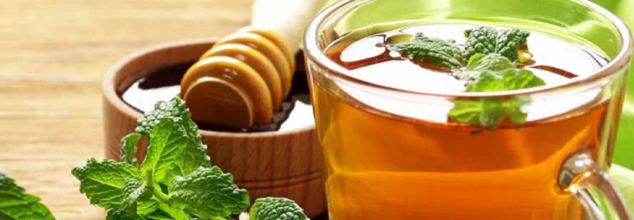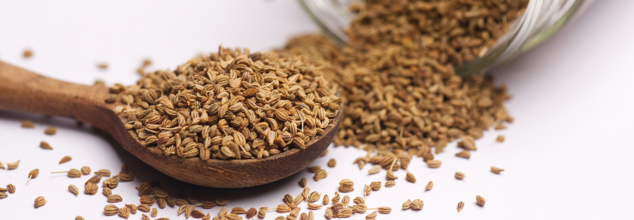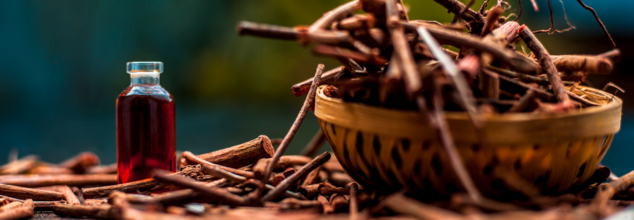- Health Conditions A-Z
- Health & Wellness
- Nutrition
- Fitness
- Health News
- Ayurveda
- Videos
- Medicine A-Z
- Parenting
- Web Stories
Hydrating ‘Ayurvedic Gatorade’ Recipe You Must Try This Summer

(Credit-Canva)
Ayurveda is not just remedies and recipes for health, but a way of living. While you may think its relevance has declined in the current world, studies and experts often explain that the base values of ayurveda remain the foundation of healthy living. Drawing from nature and our surroundings, this ancient form of medicne has taught us different ways to protect ourselves, whether it is from diseases or merely seasonal changes.
With peak summer days continuing currently, people are trying to do their best to beat the summer illnesses, keeping indoors, in cool areas, using sunscreens as well as eating hydrating foods. Ayurveda offers many remedies for the same, that help you focus on your overall well-being. One such summer ayurvedic trip that can help one overcome the summertime heat oppression is the ‘Ayurvedic Gatorade’. Published in the ayurvedic well-being journal “What to Eat for How You Feel: The New Ayurvedic Kitchen” by Divya Alter, this recipe is an essential for summers.
Ayurvedic Gatorade for Summers
Made with toasted cumin, fresh coconut, and soma salts, this ayurvedic hydrating drink is a great addition to your summer diet. Make sure to include the toasted cumin, nutmeg, and soma salt in this drink. The cumin and nutmeg help your body soak up nutrients, and the soma salt provides essential minerals. The best part is when all six flavors in the drink taste balanced, with no single one being too strong. Even though it's listed as a cooling recipe, this drink is good for everyone, no matter the season. Drink it when you're working out or on detox days to prevent dehydration, even before you feel thirsty. Here are some important things you must know about the ayurvedic components of the drink
'
Ayurvedic Benefits Of Cumin
Cumin (jeera) water is a powerful digestive aid, reducing gas and acidity. It also helps with healthy weight loss by boosting metabolism. During monsoon, it strengthens immunity with its antimicrobial properties. Cumin can assist in controlling blood sugar and improve sleep quality when consumed before bed.
Ayurvedic Benefits of Nutmeg
Nutmeg is packed with antioxidants that protect your cells from damage. It also has anti-inflammatory properties, potentially easing conditions like arthritis. Studies show it has antibacterial effects against harmful bacteria, including those causing dental issues. Additionally, nutmeg might benefit heart health, mood, and blood sugar control, though more human research is needed for these effects.
Ayurvedic Benefits of Mint
Mint helps your body in many ways. It improves digestion by boosting enzymes and fighting stomach issues. It also aids breathing by clearing congestion and soothing allergies. Mint can relieve headaches and keep your teeth healthy by fighting bad breath. Plus, it can help with weight loss by improving metabolism and can even boost memory and reduce stress.
Nature's 'Antibiotic' Is A Must Have For Your Skincare This Summer- 9 Reasons Why

(Credit-Canva)
The remedies and routines that ayurveda offers, have been present for years. Some of these methods happen to be thousands of years old, yet still effective when it comes to our health and well-being. Ayurveda is a traditional medicine system that promotes healing from within, and a holistic approach to our body, mind and spirit well-being.
It is not just about remedies, but it is also a way of living, ayurveda teaches us different things about life and how use the nature around us to ensure our health. Different plants and herbs that you may be familiar with, could play a big role in ensuring your health. For example, you could use Tulsi as a cough remedy, honey remedies, as well as aloe vera mixtures can help you protect your skin.
A Cooling Summer Essential
Because of its cooling and anti-inflammatory properties, Aloe Vera is considered one of the best natural remedies for sunburn. Applying it creates a protective layer and helps your skin hold onto moisture.
Hydrates the Skin
Unlike many other moisturizers, Aloe Vera gel helps to unclog pores and makes your skin softer when used as a hydrating gel.
Combats Signs of Aging
Rich in vitamins C, E, and beta-carotene, Aloe Vera helps restore your skin's natural fullness. It also boosts your body's production of collagen and improves skin elasticity, which can reduce signs of aging.
Acts as a Conditioner for the Hair
Just like it moisturizes skin, Aloe Vera helps to condition and soften your hair. Regularly putting Aloe Vera on your hair locks in moisture and keeps its natural shine and healthy look.
Aloe Vera for Acne
Aloe Vera has strong anti-inflammatory properties that are effective in controlling acne and reducing the redness and swelling it causes. Its enzymes form a protective layer on the skin that fights acne-causing bacteria. In Ayurveda, Aloe balances skin types prone to acne with its cleansing and purifying actions.
Aloe Vera for Skin Brightening
Its high moisture content helps reduce the appearance of scars and blemishes, and it also boosts the creation of new skin cells. For brighter skin, mix Aloe Vera gel with lemon juice and a tiny bit of turmeric, then apply it to scars and dark spots to gradually fade them.
Aloe Vera for Dryness & Dullness
With its healing and hydrating qualities, Aloe Vera is an excellent choice for dry skin because it provides much-needed moisture. Beyond just moisturizing, Aloe Vera delivers a powerful burst of hydration, leaving your skin feeling refreshed and healthy.
As a Moisturizer for Oily Skin
If you have oily skin that needs hydration without feeling heavy, Aloe Vera is perfect. It provides a balanced moisturizing effect, sinking in nicely and leaving your skin feeling refreshed, never greasy or sticky.
As a Natural Detoxifying Juice
Drinking Aloe Vera juice can help your body get rid of harmful toxins. Consuming it first thing in the morning is highly beneficial, supporting a healthy gut and generally cleansing your entire internal system for a fresh start.
Staple Indian Seed That Could 'Save' Your Gut And Lower Blood Pressure If Eaten Proportionally

(Credit-Canva)
Carom seeds, also known as ajwain, have many health benefits. Many Indian dishes as these seeds, many even add it to assorted breads like chapatis, naans, puris etc. The herb is also often sold as power for its unique taste. However, not only are these rich in fibers, but also antioxidants, vitamins and minerals.
The protective properties of these ayurvedic seeds are often eaten roasted as well as by adding it in water to get relief from constipation, due to its laxative properties. Studies have also shown that ajwain is useful for asthma patients as well, by bringing out the mucus easily and helping manage chronic bronchitis.
Traditional Medicinal Applications of Carom Seeds
Being a staple in Indian cuisine, many people enjoy its slightly bitter taste that resembles thyme. While they are called "seeds,", they are technically small fruits, that are typically dry-roasted or ground before being incorporated into various spice blends. As mentioned above, you can enjoy them as is or add the powder in water and drink it.
Besides being used in cooking, ajwain is also very important in old healing methods like Ayurveda and Siddha. These methods believe that being healthy means having a good balance between your body, mind, and spirit. Ajwain is used in these practices to help with many different health problems. As you may know, ayurveda represents healing with the help of nature and from within. Ajwain embodies that and makes our body equipped and able to protect itself from unhealthy invaders.
What Are Key Components And Benefits of Carom Seeds?
Ajwain seeds contain a notable amount of essential oil, commonly referred to as ajwain oil. A key component of this oil is thymol, a phenol responsible for the fruit's thyme-like scent. Thymol is recognized for its beneficial effects on digestive issues and also exhibits antifungal and antibacterial properties.
Supporting Digestive Health
The active enzymes present in ajwain can enhance the secretion of stomach acids, thereby providing relief from common digestive discomforts such as indigestion, bloating, and gas. Furthermore, the plant may aid in the treatment of peptic ulcers and sores within the esophagus, stomach, and intestines.
Preventing Infections
The essential oils found in ajwain, particularly thymol and carvacrol, demonstrate the ability to inhibit the growth of various bacteria and fungi. They may also be effective against bacteria like Salmonella and E. coli, which are known to cause food poisoning and other gastrointestinal problems.
Potential for Lowering Blood Pressure
Preliminary research involving rats suggests that thymol, a component of ajwain, might help regulate blood pressure by preventing calcium from entering the heart's blood vessels. However, further research is necessary to confirm if these effects translate to humans.
Alleviating Cough and Congestion
Ajwain can offer relief from coughs and help to clear mucus from the nasal passages, facilitating easier breathing. It may also contribute to the widening of bronchial tubes, potentially benefiting individuals with asthma.
Providing Toothache Relief
The anti-inflammatory properties of thymol and other essential oils in ajwain may help to reduce pain associated with toothaches. Additionally, thymol's antibacterial and antifungal properties can contribute to improved oral health by combating harmful microorganisms in the mouth.
Soothing Arthritis Pain
Ajwain may also help to alleviate pain and swelling. A paste made from crushed ajwain fruits can be applied topically to joints to treat arthritis pain. Alternatively, adding a handful of ajwain seeds to a warm bath can provide soothing relief.
Little-Known Ayurvedic Remedy 'To Smoothen' Your Gut And Skin Troubles

Ayurveda has a long history and origins spanning thousands of years. There are many herbs and recipes that have been used throughout these years to better our health and well-being. While there had been a lot of skepticism regarding how effective it is, studies show it has many benefits and knowledge to give. From small ailments to long term health benefits, these herbs have also been proven to help by science as well.
According to the International Journal of Advanced Research, the Manjistha plant has many benefits in medicine like blood purifier activity, anticancer, astringent, anti-acne, anti-inflammatory, anti-microbial, antiseptic etc., properties.
How Does Manjistha Improve Your Skin Health?
Manjistha herb can be used both inside your body and on your skin to help make your skin look lighter. If you mix Manjistha powder with honey or rose water and put it on your face a few times a week, it can help with acne and pimples. It does this by stopping the germs that cause acne from growing, thanks to the good stuff in it that fights damage.
Putting Manjistha oil mixed with coconut oil on your skin can also help with redness and rashes from acne because it can calm your skin down. It can even make your hair look shiny and healthy. Washing your eyes with water boiled with Manjistha might help if your eyes are watering too much because it can help dry them a little.
Is Majistha A Bonus For Your Gut Issues?
Taking Manjistha powder after you eat lunch and dinner can help if you have diarrhea. This is because it can make you feel more hungry and help your body digest food better. Eating Manjistha regularly might also be good for people with sugar problems because it can help lower the amount of sugar in their blood.
Manjistha is a really helpful herb for dealing with all sorts of skin issues. In Ayurveda, it is believed, when one's energy called Pitta is off balance, it can mess with blood and cause skin problems like redness or acne. Manjistha helps to clear out your blood and can treat different skin problems.
Health Benefits of Manjistha
Manjistha is a really helpful herb for dealing with all sorts of skin issues. Manjistha helps to clean your blood and can treat different skin problems because it helps balance Pitta and purify the blood.
Manjistha is also very useful for managing symptoms of diarrhea, called 'Atisar' in Ayurveda. According to Ayurvedic experts, diarrhea occurs because of factors like bad food, dirty water, stress, and weakend digestion. Manjistha can help control diarrhea by making your digestion better and also stop any bleeding thanks to its natural properties.
© 2024 Bennett, Coleman & Company Limited

